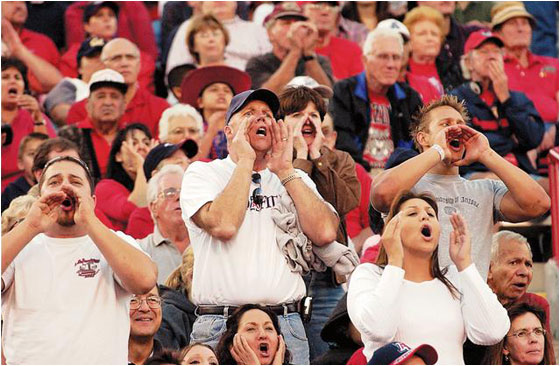Interesting
piece in Slate this week about the disproportionate number of major league baseball players born in August as opposed to July. The reason, it seems, is that the birthday cut-off for youth baseball leagues around the country for the last half-century has been Aug. 1, meaning that kids born in August are the oldest in their leagues and have an advantage in skill development, attention from coaches, etc., over their July-born pipsqueak counterparts, an advantage that stays with them for the rest of their lives. The Slate author's contention is that, while this advantage can be neutralized by pure skill --- i.e., Alex Rodriguez and Barry Bonds are so naturally good that their being born in July was never able to hurt them --- it shows up most prominently when we look at the less talented major leaguers (Juan Pierre being the August-born poster scrub for the Slate piece).
With this in mind, I thought it would be interesting to compile lists of players who most clearly disconfirm and confirm the hypothesis: (i) guys born in July who suck but still made it to the majors, vs. (ii) guys born in August who suck and who, by hypothesis, only made it because they started out their lives beating up on kids a year younger than them. As in the Slate piece, I've limited myself to players born in the U.S. after 1950. Names are listed alphabetically.
Judge for yourselves:
(i) Lamest major leaguers born in July: Mike Bordick, Ozzie Canseco, Danny Heep, Kirt Manwaring, Jody Reed, David Segui, Ed Sprague, Tim Teufel
(ii) Lamest major leaguers born in August: Mark Bellhorn, Sid Bream, Scott Brosius, De Wayne Buice, Marlon Byrd, Don Carman, Matt Clement, Craig Counsell, Joe Cowley, Bubba Crosby, Kevin Elster, Sal Fasano, Gary Gaetti, Doug Glanville, Jason Grimsley, Von Hayes, Ron Karkovice, Mike Maddux, Pat Mahomes, Mike Maroth, Gary Matthews Jr., Oddibe McDowell, Eric Milton, Mackey Sasser, B. J. Surhoff, Jeff Weaver
(iii) Honorable mention: Rance Mulliniks (born in January, but still)
These lists emphatically support the August advantage hypothesis. For every Tim Teufel who somehow shook off the July curse, there are three or four Mackey Sassers who rode their August birthdays to where their natural talents couldn't otherwise have taken them. If you notice a preponderance of players on these lists who were active in the mid to late 80's and/or at some point played for the Phillies, congratulations, you have successfully identified the extremely scientific criteria according to which this study was conducted.
Don't agree? Make your own damn list:
baseball-reference.com




